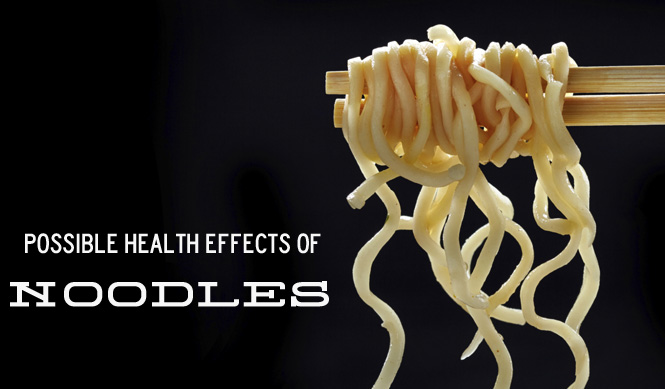
 The recent stand-off between Nestle – the manufacturer of Maggi noodles – and the Food Safety and Drug Administration (FDA) in Uttar Pradesh has once again brought to the foreground the issue of safety of packaged food.
The recent stand-off between Nestle – the manufacturer of Maggi noodles – and the Food Safety and Drug Administration (FDA) in Uttar Pradesh has once again brought to the foreground the issue of safety of packaged food.
Instant noodles – Maggi being one of the brands – have faced a host of allegations over the years. In 2014, there was a chain email doing rounds that instant noodles are coated with a layer of wax, which when consumed, can affect your liver and kidneys. Some suggested that there are non-vegetarian contents – extracted from pig intestines – even in packets marked vegetarian on the label.
What Does Nestle Say in Its Defence?
At that time, Nestle came out with a disclaimer which refuted these allegations. Among other things, it said:
1. Contrary to what the mail says, we DO NOT ADD MSG to MAGGI Noodles!
2. Contrary to what the mail says, MAGGI Noodles ARE NOT COATED WITH WAX!
3. Contrary to what the mail says, you DO NOT NEED TO DRAIN THE WATER in which you make MAGGI Noodles. The method of preparation is printed on MAGGI Noodles packs and is the correct and safe way to prepare it. (Source: nestle.in)
Now, the allegations are about more than acceptable levels of lead and monosodium glutamate (MSG). Nestle has shot back by saying that the sample tested by FDA belonged to a batch that had passed its ‘use by’ date. Further, it has released another disclaimer this time round, part of which states:
“We do not add MSG to MAGGI Noodles and our label declarations are as per local regulation. We use raw materials in MAGGI Noodles which can contain naturally occurring Glutamate. It is important to note that many agricultural commodities like Onion, Peas, Tomatoes, etc. contain glutamate. This could be confused with commercially added MSG. Glutamate is safe to consume”. (Source: nestle.in)
Nestle also claimed that it regularly monitors for lead as part of its stringent quality control processes. According to the company, tests by accredited laboratories have consistently shown lead levels in MAGGI Noodles to be within permissible limits.
Why Should We be Bothered About the Level of Lead in Our Food?
Lead is a naturally occurring metallic element that is used as an additive in paints, water pipes and ceramics. Inhaling it, eating food or drinking water that contains lead can result in a condition called plumbism, the features of which include weight loss, anaemia, abdominal cramps and a bluish black line on the gums. In children, lead poisoning is particularly harmful, and may result in developmental delay and behavioural problems.
What is MSG?
MSG, which is added as a flavour enhancer in a variety of foodstuffs such as instant noodles, chips, crisps and other ready-made snacks, is the sodium salt of a naturally occurring amino acid called glutamic acid.
Why MSG Can be A Cause of Concern?
MSG can be a problem if you are allergic to it, or if a child with attention-deficit hyperactivity disorder (ADHD) consumes it, as it is known to worsen the symptoms of ADHD. However, one needs to consume as much as 3 gram of MSG in one sitting before the adverse effects are noted, which is a remote possibility in daily life. Also, since glutamic acid can be present in certain vegetables, it is difficult to ascertain the exact level of MSG in snacks.
Be Well-informed
While the outcome of the dispute between Nestle and FDA is awaited, make sure that you read the labels of foodstuffs closely for the presence of potentially harmful contents such as MSG, aspartame, lead, nitrites, sodium benzoate, and artificial colours such as red and yellow. Since labels such as ‘contains no added MSG’ can be misleading, some also recommend looking for the presence of hydrolysed vegetable protein (HVP), hydrolysed plant protein (HPP), hydrolysed soy protein (HSP) or autolysed yeast extracts, all of which contain glutamic acid.
Finally, it is important to remember that whatever your favourite snack – instant noodle, chips or colas – consuming it in moderate quantities is advisable. Snacks can never be an alternative to a well-balanced meal.
Read More:
Maggi is Back: Know What was Bad in Maggi Noodles
10 Healthy Alternatives to Maggi Noodles
Food Testing Labs in India
Top 10 reasons why vegetable and pulses prices keep soaring in India
Is Most of India Vegetarian? – An Infographic
Are we eating fruits and vegetables or pesticides?
this is a good information. I use to eat Maggie when ever no body is there but from now lwill be more careful
Thanks for your comments. As an add on to the article above, I would suggest that not just Maggi, but all other brands of noodles, and packaged food should be tested for harmful contents. Stringent rules and uniform application of food safety norms are required in general.
maggi should be banned if it is really not healthy
Comments are closed.